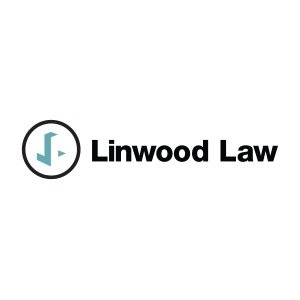Best Sanctions & Export Controls Lawyers in New Zealand
Share your needs with us, get contacted by law firms.
Free. Takes 2 min.
Or refine your search by selecting a city:
List of the best lawyers in New Zealand
About Sanctions & Export Controls Law in New Zealand
Sanctions and export controls in New Zealand are laws and regulations designed to restrict certain types of trade, financial transactions, and the exchange of sensitive technology with specific countries, entities, or individuals. These controls are put in place for reasons such as upholding international peace and security, complying with obligations set by the United Nations, or achieving New Zealand’s own foreign policy goals. The government uses these measures to prevent the flow of goods, technology, and resources that may contribute to the proliferation of weapons or support activities against national or international security interests.
Why You May Need a Lawyer
Seeking legal advice is essential if you are involved in activities that may be subject to sanctions or export controls. Common situations include:
- Exporting goods or technology from New Zealand to countries under sanctions or restricted lists
- Providing business or financial services to overseas clients in sanctioned regions
- Transferring sensitive information, technology, or intellectual property internationally
- Uncertainty about whether a product or transaction requires approval or a license
- Facing investigation or enforcement action by authorities for alleged breaches of sanctions or export controls
A lawyer experienced in this field can help you navigate complex regulations, avoid costly penalties, and maintain compliance with New Zealand law.
Local Laws Overview
In New Zealand, sanctions are largely governed by the United Nations Act 1946 and the Sanctions Act 2022. The government can impose sanctions to give effect to United Nations Security Council resolutions or to further New Zealand's independent foreign policy objectives. These include restrictions on trade, financial transactions, travel bans, and asset freezes. The Ministry of Foreign Affairs and Trade (MFAT) publishes a list of sanctions currently in force, as well as guidance on compliance.
Export controls are enforced under the Customs and Excise Act 2018 and the Trade in Endangered Species Act 1989, among others. The New Zealand Customs Service and MFAT regulate the transfer of controlled goods, software, and technologies. Items subject to control include weapons, dual-use technologies, certain chemicals, and items with potential military applications. Exporters may be required to obtain permits or licenses before exporting controlled goods or information.
Penalties for non-compliance can be severe, including substantial fines, imprisonment, and reputational damage. For businesses, there is also the risk of restrictions on future trading activities.
Frequently Asked Questions
What are sanctions?
Sanctions are measures imposed by a country or international body to restrict trade, investments, or interactions with specific countries, organizations, or individuals for reasons such as security, human rights, or foreign policy.
Who administers sanctions in New Zealand?
Sanctions in New Zealand are administered primarily by the Ministry of Foreign Affairs and Trade, with enforcement support from other agencies including New Zealand Customs and the Police.
What is an export control?
Export controls are laws or regulations that restrict the export of certain goods, technologies, software, or information to other countries, often for security reasons or to comply with international obligations.
When do I need an export permit?
You need an export permit if you are exporting goods, technology, or information that appears on the New Zealand Strategic Goods List or is otherwise controlled under New Zealand law. This includes some dual-use items that have both civilian and military applications.
What are the penalties for breaking sanction or export control laws?
Penalties can include significant fines, imprisonment, and loss of export privileges, depending on the severity and nature of the breach.
Are individuals as well as companies subject to these laws?
Yes, both individuals and companies must comply with New Zealand’s sanctions and export control regulations. Ignorance of the law is not an excuse.
Can I trade with people or companies in sanctioned countries?
Generally no, unless you have obtained specific exemptions or licenses from the relevant authorities. Attempting to circumvent sanctions is illegal.
How can I check if my product needs an export license?
You should consult the New Zealand Strategic Goods List and seek guidance from MFAT or a qualified legal professional. If there is any doubt, professional advice is recommended.
Do sanctions only apply to physical goods?
No, sanctions also apply to services, funds transfers, certain types of technology, and even providing advice or assistance in some cases.
What should I do if I am under investigation for a sanctions breach?
It is crucial to seek immediate legal advice from a lawyer experienced in sanctions and export controls. Early legal intervention can help protect your rights and interests.
Additional Resources
If you need more information or guidance, the following resources can be very helpful:
- Ministry of Foreign Affairs and Trade (MFAT) - Provides guidance, lists of current sanctions, and application forms for export permits.
- New Zealand Customs Service - Responsible for enforcing export controls and providing information for exporters.
- New Zealand Police Financial Intelligence Unit - Handles reports of suspicious financial activity related to sanctions.
- New Zealand Law Society - Offers directories for finding qualified lawyers specializing in sanctions and export controls.
Next Steps
If you believe that sanctions or export controls may impact your business or personal activities, consider the following steps:
- Review the MFAT and Customs Service guidance relevant to your situation
- Identify whether your goods, services, or activities may require an export permit or license
- Seek professional legal advice to assess your compliance obligations
- Establish internal compliance procedures to ensure you meet all legal requirements
- If you are contacted by authorities regarding a possible breach, do not respond without first consulting a lawyer
Engaging an experienced lawyer early can help you understand your obligations, avoid unintentional breaches, and handle any investigations or enforcement actions effectively.
Lawzana helps you find the best lawyers and law firms in New Zealand through a curated and pre-screened list of qualified legal professionals. Our platform offers rankings and detailed profiles of attorneys and law firms, allowing you to compare based on practice areas, including Sanctions & Export Controls, experience, and client feedback.
Each profile includes a description of the firm's areas of practice, client reviews, team members and partners, year of establishment, spoken languages, office locations, contact information, social media presence, and any published articles or resources. Most firms on our platform speak English and are experienced in both local and international legal matters.
Get a quote from top-rated law firms in New Zealand — quickly, securely, and without unnecessary hassle.
Disclaimer:
The information provided on this page is for general informational purposes only and does not constitute legal advice. While we strive to ensure the accuracy and relevance of the content, legal information may change over time, and interpretations of the law can vary. You should always consult with a qualified legal professional for advice specific to your situation.
We disclaim all liability for actions taken or not taken based on the content of this page. If you believe any information is incorrect or outdated, please contact us, and we will review and update it where appropriate.
Browse sanctions & export controls law firms by city in New Zealand
Refine your search by selecting a city.

















